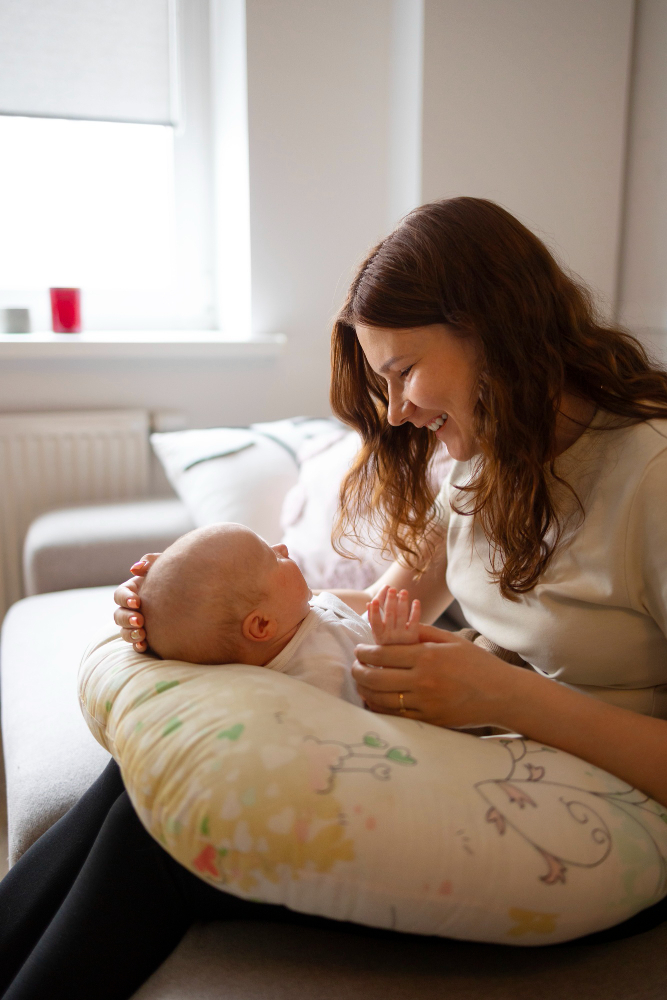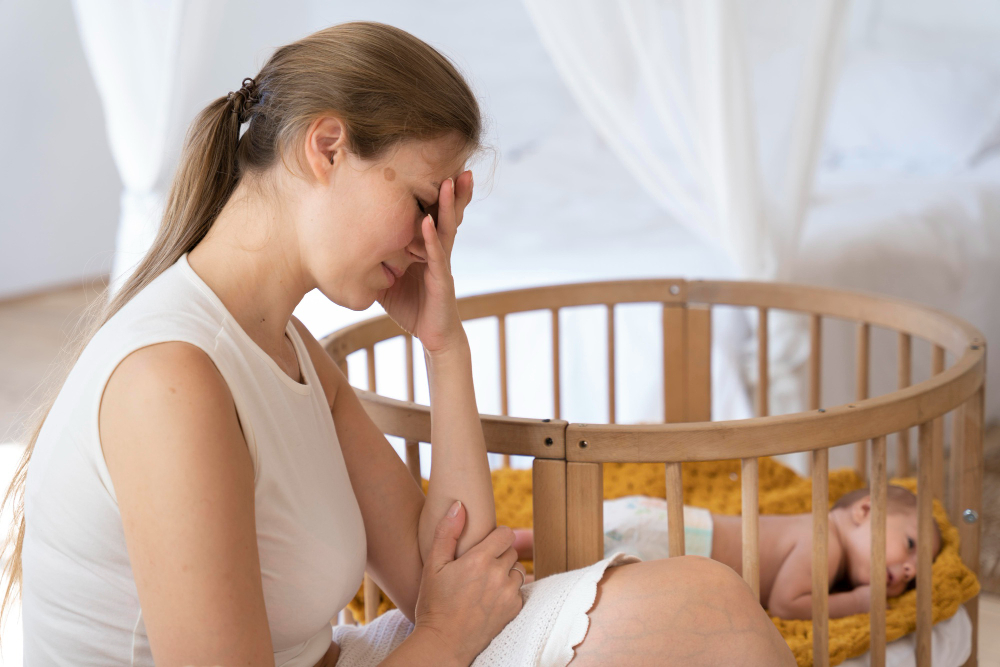The Critical Importance of Post-Birth Care for Mother and Baby

The 6–12 weeks after birth, often referred to as the fourth trimester, are just as critical as pregnancy itself. It’s a time of massive physical, emotional, hormonal, and psychological changes for the mother, and the foundation of survival, bonding, and growth for the newborn.
Approximately 2.3 million babies die globally within the first 28 days of life each year (the neonatal period), including about 6,300 newborn deaths every day in recent years. Nearly all of these deaths are preventable through proper care and interventions.
Over 800 women die daily from preventable causes related to pregnancy and childbirth, mostly within six weeks postpartum, a rate equivalent to one maternal death every two minutes
Key Areas of Focus Post-Birth:
- Physical recovery (uterus, perineum, C-section wounds)
- Hormonal balancing
- Breastfeeding support
- Sleep deprivation and emotional health
- Newborn care basics (feeding, hygiene, sleep safety)
- Recognizing red flags (for both mum and baby)
Postpartum Physical Recovery & Red Flags for Mothers
✅ Normal Recovery Includes:
- Vaginal bleeding for 2–6 weeks (lochia)
- Breast engorgement or leakage
- Mild cramps as the uterus shrinks
- Emotional fluctuations due to hormonal changes
🚨 Red Flags to Watch For:
- Heavy bleeding (soaking a pad per hour)
- Foul-smelling discharge (possible infection)
- Swollen or red legs (possible blood clots)
- High fever or chills
- Breast pain with fever (possible mastitis)
- Painful or foul-smelling urination (possible infection)
🍽️ Nutrition for Healing:
- High-protein diet → supports tissue repair
- Iron-rich foods → replenish blood loss
- Omega-3s & B-vitamins → support mental health
- Stay hydrated → especially important for breastfeeding
😴 Sleep, Rest & Asking for Help:
- Rest when the baby sleeps to avoid burnout.
- Share responsibilities with your partner or family.
- Accept help to protect both emotional well-being and decision-making ability.

Ways TransformationWithin Online Programmes & On-Demand Videos Support New Mums & Babies
With Lifesaving Awareness & Whole-Person Guidance
Conscious Nurturing Circles
Safe, mother-centered spaces that build self-trust, uncover silent risks, and replace fear with grounded awareness — without overwhelming jargon or shame.
Protective Wisdom Pathways
Revealing hidden threats often overlooked — from unsafe “traditions” to emotional neglect — while offering clarity and confidence for real-time decision-making.
Intuitive Care Teaching
Awakening a mother’s natural instincts with evidence-backed knowledge, empowering her to respond wisely to baby’s needs and cues.
Micro-Moments Safety Mapping
Spotting small but critical actions — bath temperature, feeding posture, sleep surroundings, and preventing overstimulation — that protect a baby’s health.
Rooted Regulation for Mum & Baby
Helping mothers align their nervous systems so babies can feel safe and regulated in their calm presence.
Truth Beyond Tradition Dialogues
Gently dismantling harmful generational advice and replacing it with science-based nurturing that respects culture while protecting babies.
Maternal Mirror Insight
Helping mums see how stress, beliefs, and past trauma shape a baby’s brain, bonding, and biology — with reflection tools to reset patterns early.
Infant Clarity Coaching
Teaching mothers to “read” a baby’s body language, facial expressions, tone, and energy changes to prevent misinterpretation or harm.
Postpartum Awareness
Decoding the early signs of postpartum mental health struggles so help arrives before a crisis — replacing helplessness with support.
Whole Home Health Lens
Guiding mothers to view their home environment through the lens of infant brain safety, immune protection, and peace — from lighting and noise to emotional climate and toxin reduction.
🚨 Lifesaving Awareness — Injuries & Harmful Practices
🧬 Ignoring Gut Health & Mental Health
- New mums often experience gut dysbiosis from antibiotics, stress, and poor sleep
- This can worsen mood and lower immunity
- Support recovery with probiotic-rich foods and gentle exercise
🍼 Shaken Baby Syndrome (SBS)
- Caused by violently shaking a crying baby
- Can result in brain damage, seizures, blindness, or death
- No frustration justifies this — parents should learn safe calming strategies
🚗 Unsafe Car Travel
- Holding a baby on your lap is extremely dangerous
- Always use a rear-facing car seat correctly installed
🛏️ Co-Sleeping Dangers
- Risks include suffocation, falls, and overlaying
- Sleep separately but nearby in the same room
💖 Neglecting Self-Care
- Leads to burnout, poor bonding, and anxiety
- ✅ Self-care is not selfish — it’s survival

Understanding Postpartum Depression (PPD) & Maternal Mental Health
🌪️ The Hormonal Storm
- After birth, estrogen and progesterone drop sharply, affecting serotonin, dopamine, and oxytocin.
- These changes contribute to:
- “Baby blues” in up to 80% of new mothers
- Postpartum depression in 10–20% of mothers
🚨 Signs of Postpartum Depression
- Persistent sadness or frequent crying
- Fatigue beyond normal sleep deprivation
- Guilt, shame, or feeling like a failure
- Difficulty bonding with the baby
- Suicidal thoughts (urgent medical help required)
🧬 What Science Shows
- Brain imaging reveals altered activity in the amygdala and prefrontal cortex in PPD, affecting emotional regulation.
⚠️ Risk Factors
- History of mental illness
- Traumatic birth
- Lack of social or partner support
- Unresolved trauma or previous miscarriage
- Nutrient deficiencies (omega-3, iron, B12)
Related Conditions
- Postpartum Anxiety (PPA): Excessive worry, panic attacks
- Postpartum Psychosis (PPP): Hallucinations, delusions — requires immediate hospitalization
Caring for Your Newborn Baby — What Every Mother Must Know
🍼 Feeding
- Breastfeeding: Ideally exclusively for the first 6 months — provides antibodies, enzymes, and hormones essential for development and immune health.
- Formula feeding: Must be safely prepared — correct water temperature and strict hygiene are essential.
🧼 Hygiene & Handling
- Support head and neck — never shake a baby
- Keep the umbilical stump clean and allow it to dry naturally
- Wash hands before handling the baby
Sleep: Newborns sleep 14–17 hours in a 24-hour period.
✅ Safe Sleep Guidelines:
- Baby on their back, alone, on a firm surface
- No pillows, soft bedding, or toys in the sleep space
- Room-sharing (but not bed-sharing) is safest
⚠️ SIDS (Sudden Infant Death Syndrome):
- Most common in babies aged 1–4 months
- Risk factors: unsafe sleep environment, overheating, and exposure to tobacco smoke
Common but Dangerous Mistakes to Avoid:
- Shaking baby to stop crying → Shaken Baby Syndrome (SBS) causes brain swelling, bleeding, and death.
- Overwrapping/overheating → Increases SIDS risk
- Ignoring signs of infection (fever, lethargy, poor feeding)
Our Programmes
Our coaches provide comprehensive interventional support for students through both group and individual program options.
Get In Touch
Reach out to learn more about how we can help, or if you have any questions or concerns
